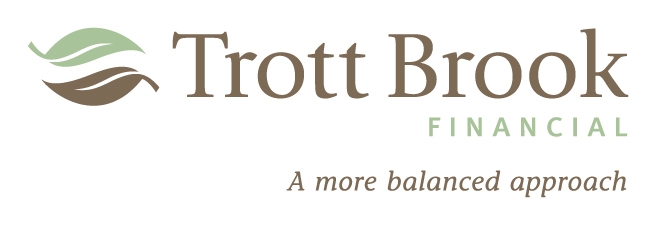Congress Passes Material Changes to Retirement System
Submitted by Trott Brook Financial on January 9th, 2020On December 19th, the United States Senate delivered an early Christmas present to Americans in the form of significant changes to the rules governing retirement plans and individual retirement accounts. Known as the “Secure Act,” most of the changes are being welcomed positively, although a few are being looked at like lumps of coal.
If you were born before July of 1949, the new law will impact you less. That’s because one of the more noteworthy changes in the law pushes out the age for required minimum distributions (RMDs) to age 72. Under current law, owners of qualified retirement accounts must start taking distributions the year in which they turn age 70.5. However, the new rule will only be applicable to those turning age 70.5 after December 31, 2019.
Another notable change impacts the beneficiaries of retirement accounts. Under current law, non-spouse beneficiaries that inherit a qualified retirement account must immediately start taking required minimum distributions regardless of age. However, beneficiaries have been allowed to “stretch” the RMDs over their expected life. Under the new law, non-spouse beneficiaries will be required to withdraw all of the funds within 10 years of inheriting the assets.
This change is especially significant for younger people who inherit retirement accounts. To understand why, let’s look a quick example.
Under current law, beneficiaries are allowed to spread RMDs over their remaining expected life. According to the IRS mortality tables, a 30-year old person has a life expectancy of 53.3 years. Therefore, a 30-year old would only be required to withdraw 1/53.3 of their inherited account in the first year. In contrast, the new law stipulates that inherited retirement accounts must be distributed over ten years (with a few exceptions).
This change may not sound like a big deal, but let’s assume the person in our example inherits a $500,000 retirement account. Under current law, the first RMD calculation would look like this:
$500,000/53.3 = $9,381
Under the new law, the calculation would look like this:
$500,000/10 = $50,000
If you’re saying, “Who cares? The beneficiary is just receiving more money sooner.” Well, you’re forgetting about the income taxes. The vast majority of retirement accounts are pre-tax dollars, meaning everything that comes out is 100% taxable. The income tax difference on $50,000 vs. $9,381 would obviously be significant.
(Of note, the new law apparently allows the required distributions to be taken all in the 10th year as an option).
There are quite a few other things in the new law. Some have to do with company sponsored retirement plans, others make it easier to contribute and withdraw money from individual retirement accounts. The law is also making it easier for company retirement plans to offer annuity options. This is clearly in response to the ongoing extinction of traditional defined benefit pensions.
As usual, much like tax law, the rules governing retirement accounts remain a moving target. It’s likely that will continue to be the case in the future.
Wishing you a healthy 2020.
Disclosure
Advisory services offered through Trott Brook Financial Inc. a registered investment advisor. Securities offered through LaSalle St. Securities, LLC, a FINRA/SIPC member broker/dealer. Trott Brook Financial Inc. and LaSalle St. Securities, LLC are unaffiliated separate legal entities.

